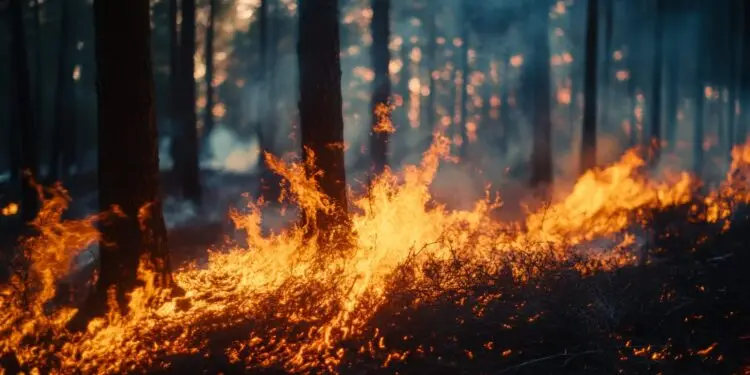A wildfire threatening one of the world’s most prominent space research centers might sound like something from a disaster movie, but this is real life in Southern California. The Jet Propulsion Laboratory (JPL), NASA’s leading research and development hub, found itself under evacuation orders as wildfires continue to wreak havoc across Los Angeles.
The irony here is hard to miss. For years, JPL scientists have been studying wildfires, analyzing everything from air pollution caused by smoke to carbon emissions from burning forests. But now, the very institution focused on understanding these destructive blazes is being forced to shut down to protect its staff from an encroaching fire.
Wildfire Near JPL Sparks Urgent Evacuations
Located in Pasadena, roughly 30 minutes from downtown Los Angeles, JPL had to close its doors as flames from the Eaton wildfire crept dangerously close. The blaze is just one of several large wildfires spreading rapidly across the region, fueled by powerful winds and dry conditions.
The broader picture looks grim for California. The state has been grappling with severe drought and unusually high temperatures, creating the perfect environment for fires to ignite and spread at alarming speeds. Winds as strong as 70 miles per hour have only made the situation more perilous.
Expressing concern for those affected, NASA administrator Bill Nelson issued a heartfelt message on social media, stating, “My heart goes out to those affected by the Palisades Fire in Southern California. Many in our NASA family, including our teams at Armstrong and JPL, are affected. Grace and I are praying for their safety and the safety of the first responders battling the blaze.”
A Growing Threat
Unfortunately, wildfires are becoming an all-too-familiar part of life in California. The latest fires have already claimed at least two lives and destroyed over 1,000 structures. Vice President Kamala Harris’ home was among the properties placed under an evacuation order earlier this week, underscoring the severity of the crisis.
Experts warn that strong winds could further intensify the flames before firefighters manage to bring them under control. Local authorities and emergency responders are racing against time to contain the blazes and prevent further destruction.
The situation serves as a stark reminder of the growing impact of climate change. As global temperatures rise and droughts become more prolonged, extreme weather events like wildfires are likely to increase in frequency and intensity. The threat to communities—and even critical research facilities like JPL—may soon become an annual ordeal.
While Southern California braces for what could be another devastating wildfire season, experts stress the importance of long-term solutions, including better forest management and reducing greenhouse gas emissions, to mitigate the risks posed by future blazes.











